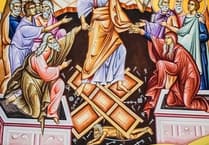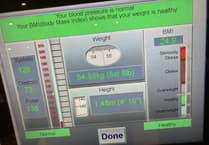The ambulance service is asking the public to use its services wisely across what is expected to be a busy four-day Easter Bank Holiday weekend.
People are urged make use of alternatives to calling 999 if they are not facing an emergency, including seeking help and advice from NHS 111 – either by visiting 111.nhs.uk or by calling 111.
South East Coast Ambulance Service NHS Foundation Trust (SECAmb) is also asking people to check on any vulnerable family or friends throughout the weekend to make sure they are safe and have everything they need.
SECAmb executive director of operations, Emma Williams, said: “We know that the longer Easter Bank Holiday can bring additional pressure for the ambulance service and our staff and volunteers will be working hard to get everyone the help they require.
“As ever, we will be prioritising our response to our most seriously ill and injured patients. We ask that anyone who is not facing a serious emergency does not call 999 and instead makes use of alternative services for help and advice including visiting NHS 111 online or speaking to a pharmacist.
“It’s also really worthwhile and a big help if people make sure they have picked up any repeat prescriptions they or anyone they care for may require and that people have useful over-the-counter medicine to be able to self-treat any minor symptoms they may develop over the weekend.
“I wish everyone a safe and happy Easter and thank all our staff and volunteers for their hard work responding to patients throughout the weekend.”
When to call 999
If you think a patient is suffering from one of the following, you must dial 999 for an ambulance:
• heart attack (e.g. chest pain for more than 15 minutes)
• sudden unexplained shortness of breath
• heavy bleeding
• unconsciousness (even if the patient has regained consciousness)
• traumatic back/spinal/neck pain
You should also call for an ambulance if:
• you think the patient’s illness or injury is life-threatening
• you think the illness or injury may become worse, or even life-threatening on the way to the hospital
• moving the patient/s without skilled people could cause further injury
• the patient needs the skills or equipment of the ambulance service and its personnel




.jpeg?width=209&height=140&crop=209:145,smart&quality=75)
Comments
This article has no comments yet. Be the first to leave a comment.